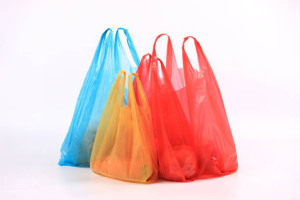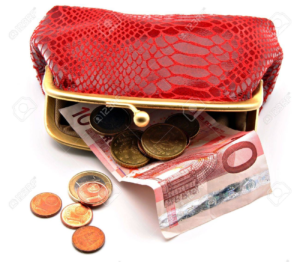What influences our behaviour around generating and disposing of stuff?
There was much excitement when one of the big discount stores opened recently in my home town. Providing yet another opportunity for some cheap retail therapy, this new outlet offered a bit of excitement for many in the midst of COVID gloom. Others welcomed the chance to hunt for bargains to help stretch their limited income further. Everyone, it seems, was happy and in these challenging times this can only be a good thing.
However, one of the downsides of discount stores is the amount of single-use products they sell cheaply. Whether it’s disposable cutlery for a day out or hats and sashes for a hen party, this stuff flies off the shelves. Because they cost so little, such items are often considered to be of little value once their single purpose has been served. What percentage will be recycled, end up as litter, burned or chucked out with the domestic refuse, only to end up in landfill?
I often wonder what contributed to us becoming wasteful. For me it all started with a plastic bag.

The plastic bag
I remember the introduction in the 70s, by a popular supermarket in Derry, of the plastic carrier bag. Just a 25 minute drive away, Superfare was a popular destination for shoppers from my home town. Superfare’s bags were super strong and our first real introduction to the world of disposable plastic. I might add that on account of their good quality many people reused them or passed them on to others. Many bags, however, would eventually be burned with other household rubbish. These bags were certainly a real novelty at the time. We didn’t have to take our shopping bag to the shop and the bags were free of charge.
The Superfare bags were especially appreciated by us young secondary school students. If you didn’t have a car, accessing Superfare necessitated two bus journeys, so not everyone had the opportunity to shop in Superfare. We used the bags as an opportunity to be creative and express our individuality. We ditched our school bags in favour of new white and blue plastic bags, then awkwardly ferried our books to school. Despite being totally impractical and uncomfortable, we didn’t care. This is my first memory of how a free plastic item impacted my life. For years afterwards, plastic carrier bags were referred to locally as a ‘Superfare bags’!
Cheap or not so cheap, that is the question
It’s human nature to devalue stuff that is free or super cheap. The dawn of the era of promotional freebies and cheap fashion crazes helped shape our behaviour around generating and disposing of waste. Once we have no further use for easily-acquired things, we want rid of them as quickly as possible. Our short-lived treasures quickly become our trash. Because we now consider them worthless, we perceive that nobody else could possibly want or need them. With the abundance and variety of cheap single-use products on offer in the ubiquitous discount store, this can only compound our distorted thinking.
The reality is that it comes at too great a price. Even when it’s free, it’s costly. There’s the cost to the environment of the manufacturing process, transportation and finally the disposal of stuff. Then there’s the human cost involved. From pollution, cheap labour, child labour and slave labour, the cost to humanity is enormous.
‘Tis the season to be wasteful
 With Christmas decorating now in full swing, many are making a Trojan effort to add a bit of extra sparkle to their homes this year. Anything that helps dispel the darkness of COVID-19 will certainly be welcomed this holiday season. Unfortunately, with the array of beautiful seasonal decorations on offer, together with the prompting of influencers and magazines, it is so easy to get carried away. It can be pure escapism, creating our magical winter wonderlands, and who doesn’t need to escape at this time? If only we could be inspired to buy pieces we will reuse for many years to come, regardless of how little they cost.
With Christmas decorating now in full swing, many are making a Trojan effort to add a bit of extra sparkle to their homes this year. Anything that helps dispel the darkness of COVID-19 will certainly be welcomed this holiday season. Unfortunately, with the array of beautiful seasonal decorations on offer, together with the prompting of influencers and magazines, it is so easy to get carried away. It can be pure escapism, creating our magical winter wonderlands, and who doesn’t need to escape at this time? If only we could be inspired to buy pieces we will reuse for many years to come, regardless of how little they cost.
There are many ways we can all help reduce the amount of waste we generate at Christmas time. You will find some tips here: https://www.annettemcnelis.ie/the-enormous-turnip-or-having-an-environmentally-friendly-christmas/
Lifestyle plays a part
2020 will be remembered as the year the dreaded COVID-19 virus turned our lives upside down. Life as we knew it vanished before our eyes. Many of us welcomed this break from lifestyles that had us run ragged week in and week out. Busy lives require first-class organisational skills to help juggle all that modern life requires of us. This is one reason for our over-reliance on convenience products, many of which are single-use and non-recyclable. It’s much easier to grab a piece of aluminium foil for your sandwich than having to wash a re-usable container every evening. This is just one small example of a typical daily routine in many households. I wonder how much foil is wasted every day- it all adds up.
We all have habits but we’re always ready and willing to embrace change when it suits us. When life is busy, however, we’re not usually quite so keen to make changes that seem irrelevant and just inconvenient. The reality is, that it’s just a matter of a change of attitude. Many small changes are easy to embrace and can actually save you time and money too. If you choose to make one change at a time, you can quickly build on this and before you know it you’ll wonder why you hadn’t thought to incorporate these changes sooner.
Climate change- it’s in our hands!
The amount of waste we produce and dispose of badly has a direct link to climate change. Everything we consume takes energy to be created, transported and even recycled. Cheap commodities are big business but they are just too costly when everything is taken into consideration. We just need to re-think our attitude to generating and disposing of stuff.
Each one of us has a part to play and the efforts we make will shape the world we leave behind for the generations coming after us. It’s in our hands!

